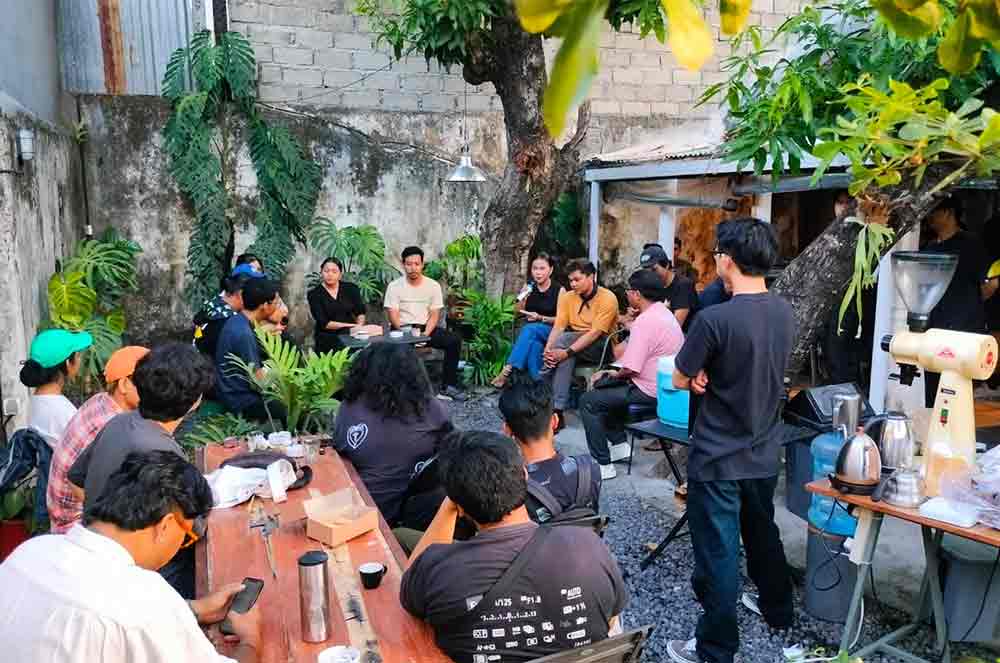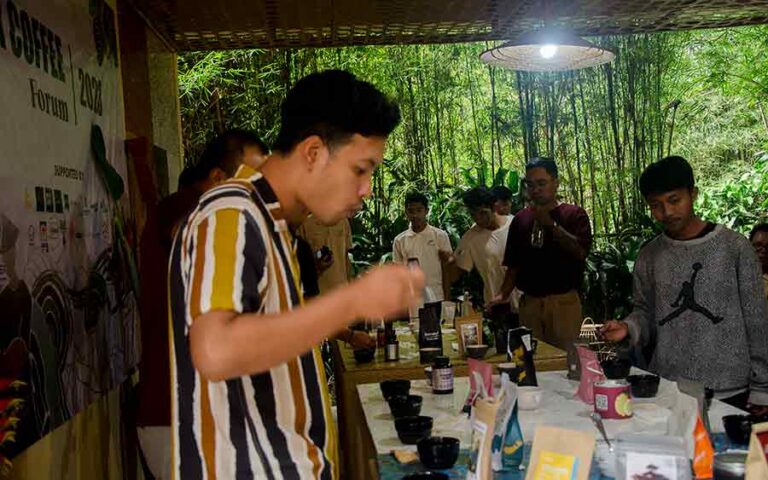A warm afternoon accompanied the bustle of Balinese coffee industry players who were gathered casually in the yard of Super Jenar Roastery, Denpasar, Bali. Coffee farmers, coffee processors, and baristas were immersed in the intimacy of the coffee cupping event and shared conversations about the coffee industry.
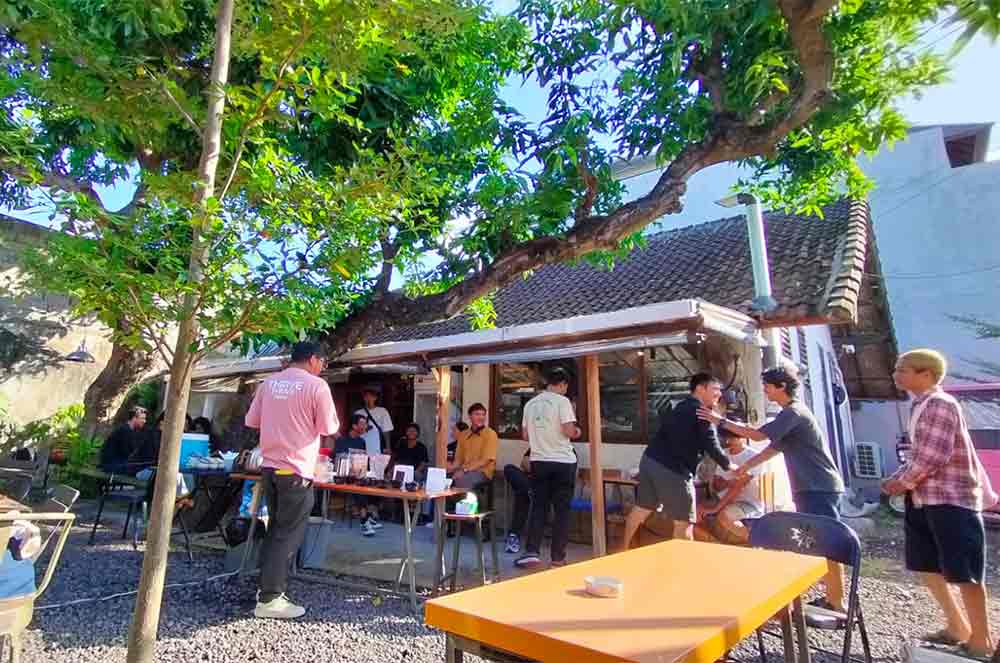
Scattered sunlight that afternoon hit some areas of the yard, forcing several people to retreat to a shady place. Some are on the terrace and on benches that escape exposure to sunlight.
In the middle of the yard, right under the shade of a mango tree, a row of taster cups are presented on a long table. Roasted coffee beans from Curtina Coffee Farm and Munduk Coffee Roastery, were supposed to be on the coffee tasting menu that afternoon.
Wana Prastha, from Curtina Coffee Farm, prepares roasted beans from Awan Village, Kintamani, which are processed using the raisin fermentation method.
Meanwhile, Arya Giri, from Munduk Coffee Roastery, brought Arabica coffee beans from Asah Gobleg Village, which were processed using the thermal shock fermentation method.
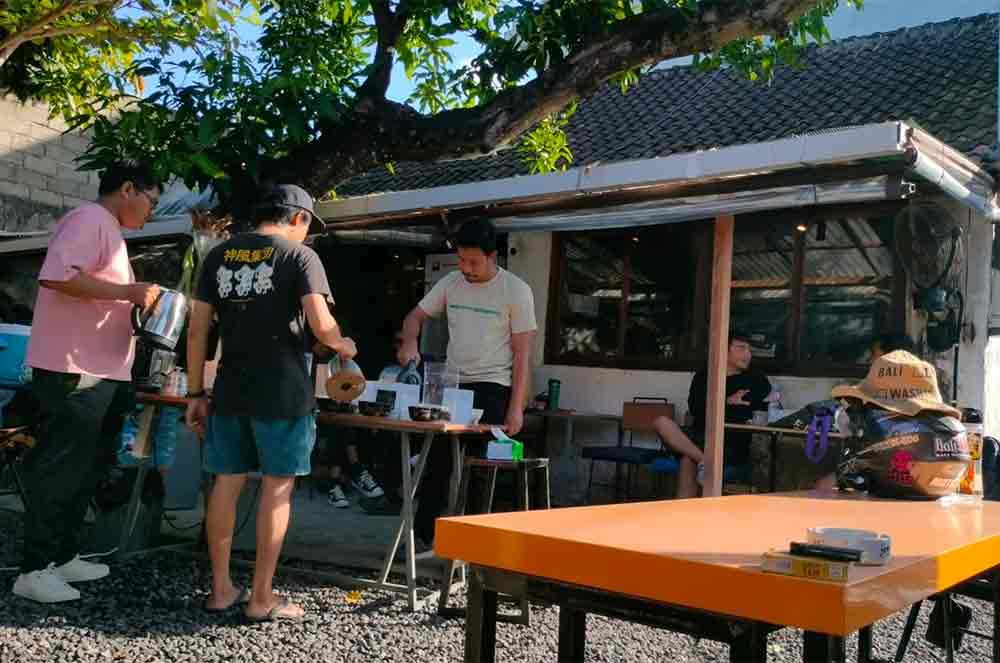
Coffee cupping begins. There are those who quickly weigh and grind the coffee beans and pour them into bowls. Some have started smelling the coffee grounds, trying to recognize the aroma before pouring hot water.
Next, the sound of loud slurping took place as rows of coffee drinkers moved around the table, scooping up bowls of coffee one by one. Tasting the delicious taste of Balinese specialty coffee.
“The coffee community in Bali has been silent for a long time since the COVID-19 pandemic. “Hopefully this can be the start for us to be active again,” said Miftahul Munir, owner of Jenar Roastery and one of the event organizers.
At least, 50 coffee activists came that Sunday afternoon (18/5). The roastery yard is quite large, enough to accommodate the participants sitting on chairs and benches lined up sporadically.
The gathering of coffee activists from various backgrounds is certainly a good opportunity to have a casual chat. There are those who operate on the upstream side, such as farmers and coffee processors. But there are also those closer to the downstream, such as roasters and coffee shop managers, who meet coffee drinkers directly.
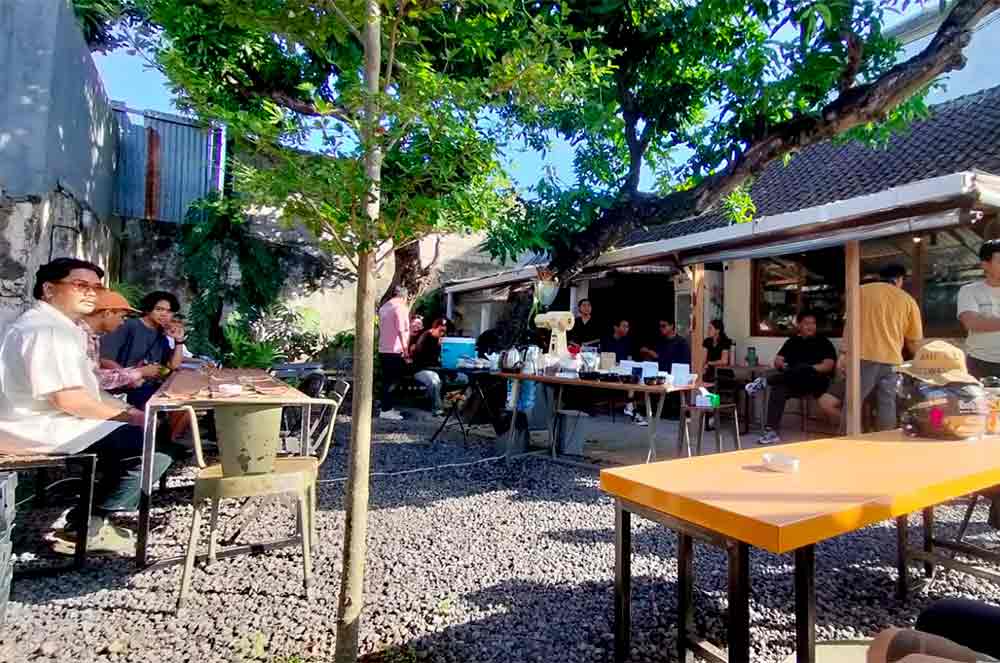
There were eight people who were asked to share their experiences and ideas. Guided by Insan Kamil, a coffee enthusiast and one of the initiators of the event, each of them got the opportunity to speak in front of Bali coffee industry players..
Arya Giri, a coffee processor from Asah Gobleg Village, Buleleng, shared his views regarding the concerns of many processors regarding the spike in coffee prices just when the harvest season arrives.
“Coffee prices are high because the area of coffee plantations has not increased significantly, and neither has productivity. But big brands are starting to enter the coffee processing business. “Making demand for coffee cherries increase while supply is stagnant,” said Arya Giri from Munduk Coffee Roastery.
He hopes that there will be more aid from the government to help farmers procure seeds or provide assistance so that coffee productivity in Bali can be increased.
The euphoria of Indonesian barista Mikael Jasin’s achievement as 1st place winner in the 2024 World Barista Championship in Busan, South Korea, was also an exciting topic of discussion that afternoon. Indonesia’s appointment as host of the World of Coffee in Jakarta 2025 was greeted enthusiastically.
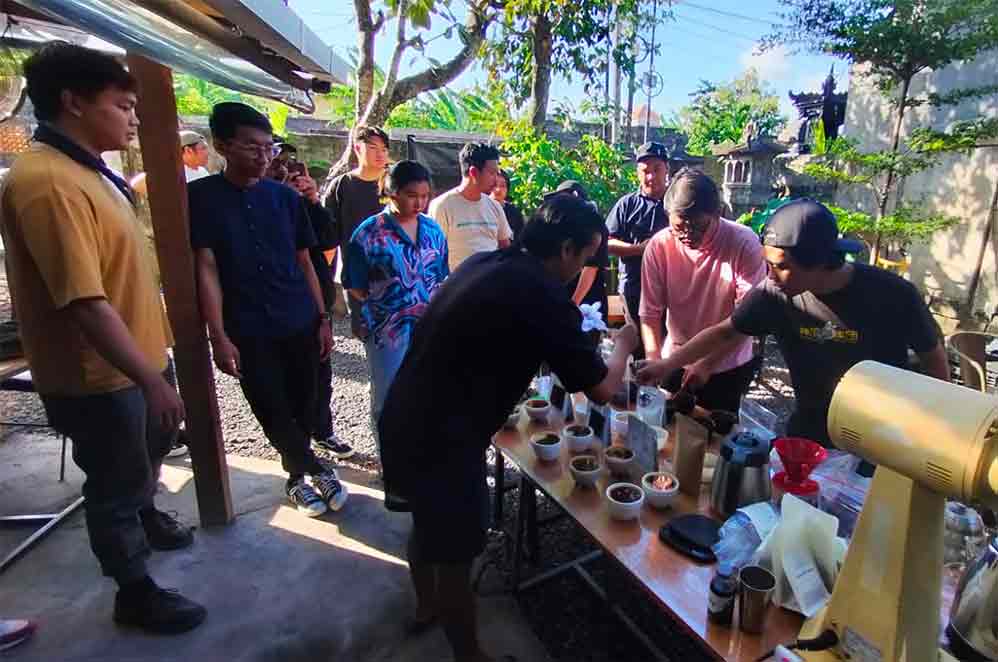
Michail Seno Ardabuana from Hungry Bird Roastery, one of Bali Coffee Industry players, highlighted the importance of reviving the coffee community in Bali.
“The coffee community can be a means of interacting and sharing information for baristas to develop their skills,” said Seno.
Stefani, from Toffin Bali, added that, according to her observations, the coffee community in Bali used to be very popular. However, now it has faded, even far behind other regions, which are increasingly enthusiastic.
“For example, Samarinda City. Currently, the coffee community is diligently holding local score-based competitions. Shows the seriousness of the baristas. “The coffee community in Bali is still not there yet,” she said.
According to her, many baristas in Bali have excellent talent and hospitality. There just needs to be more people who dare to take part in competitions at the national level.
Revo Dewa, Coffee Hunter from Coffee Beyond Border, shares stories about what he has encountered in three years of traveling around the archipelago, hunting for the best coffee.
“Baristas in Bali must have good coffee knowledge, so that the coffee that has been painstakingly cared for and processed upstream, doesn’t go to waste and just becomes cheap coffee because it is served at a low level,” said Revo.
According to him, a barista must understand why the coffee he brews is called a specialty. Unfortunately, in Bali, you can find many baristas who don’t like drinking coffee.
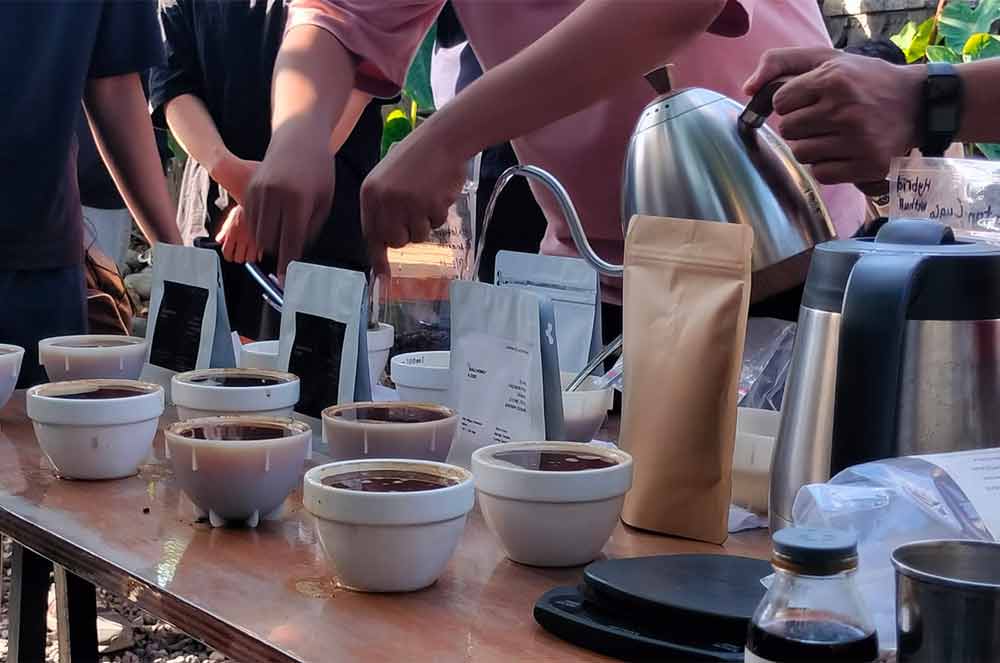
Revo really knows how hard coffee farmers and processors work. He has a lot of contact with indigenous communities in various regions, helping them improve the results of their coffee plantations.
“Coffee will be more appreciated if it is clear where it comes from, how it is grown, and who the farmer is,” said Revo, who hopes that baristas in Bali will realize the importance of knowledge and understanding about this.
The meeting of coffee activists that afternoon gave great hope for the future of the coffee industry in Bali and Indonesia. Enthusiasm is worth nurturing.
The afternoon turned into an evening. The sun was no longer visible. However, casual chatter continued, accompanied by tastings of brewed coffee from the participants who came with their roasted beans. Coffee from various regions of the archipelago has various processes and special taste profiles.

